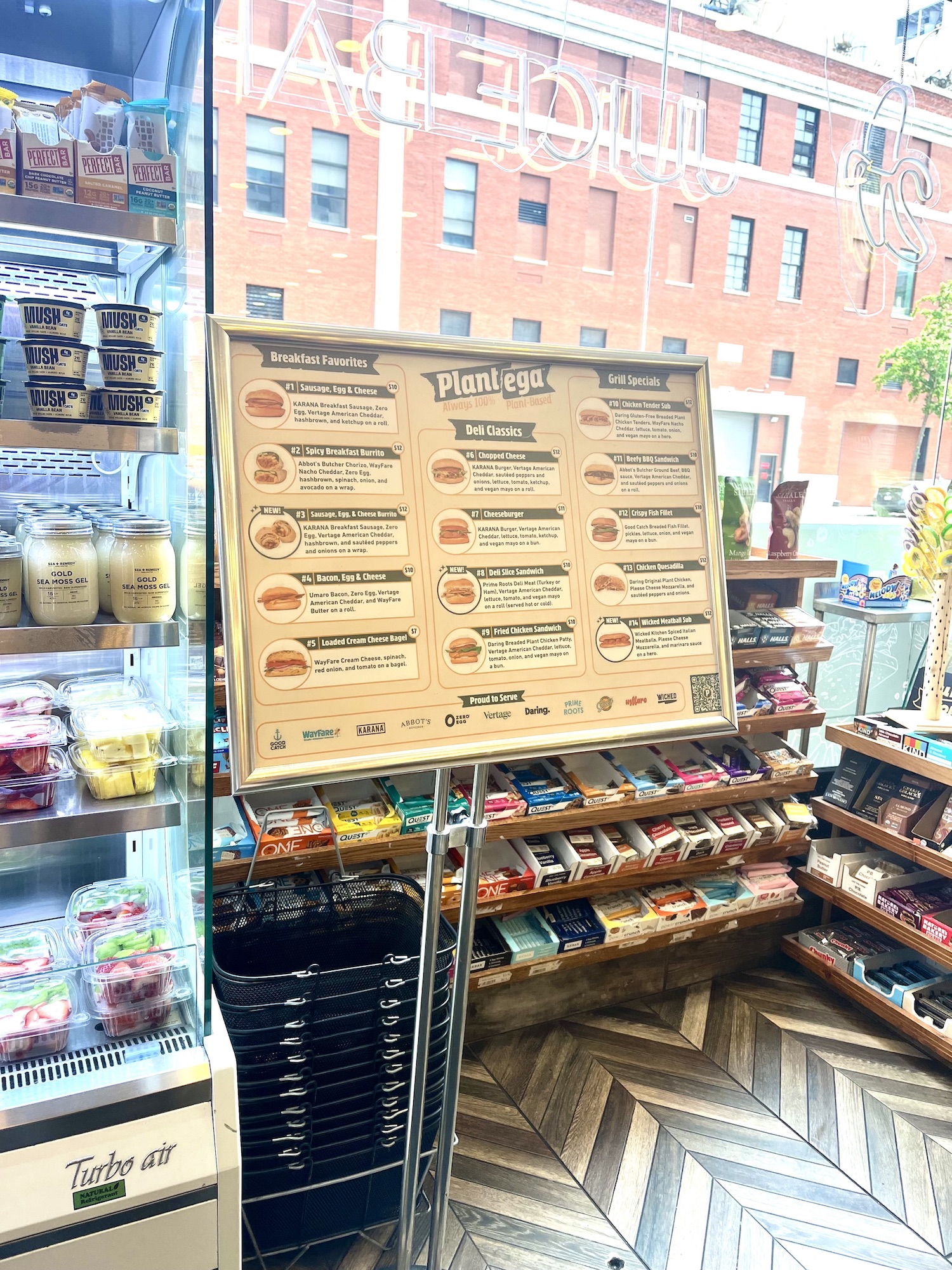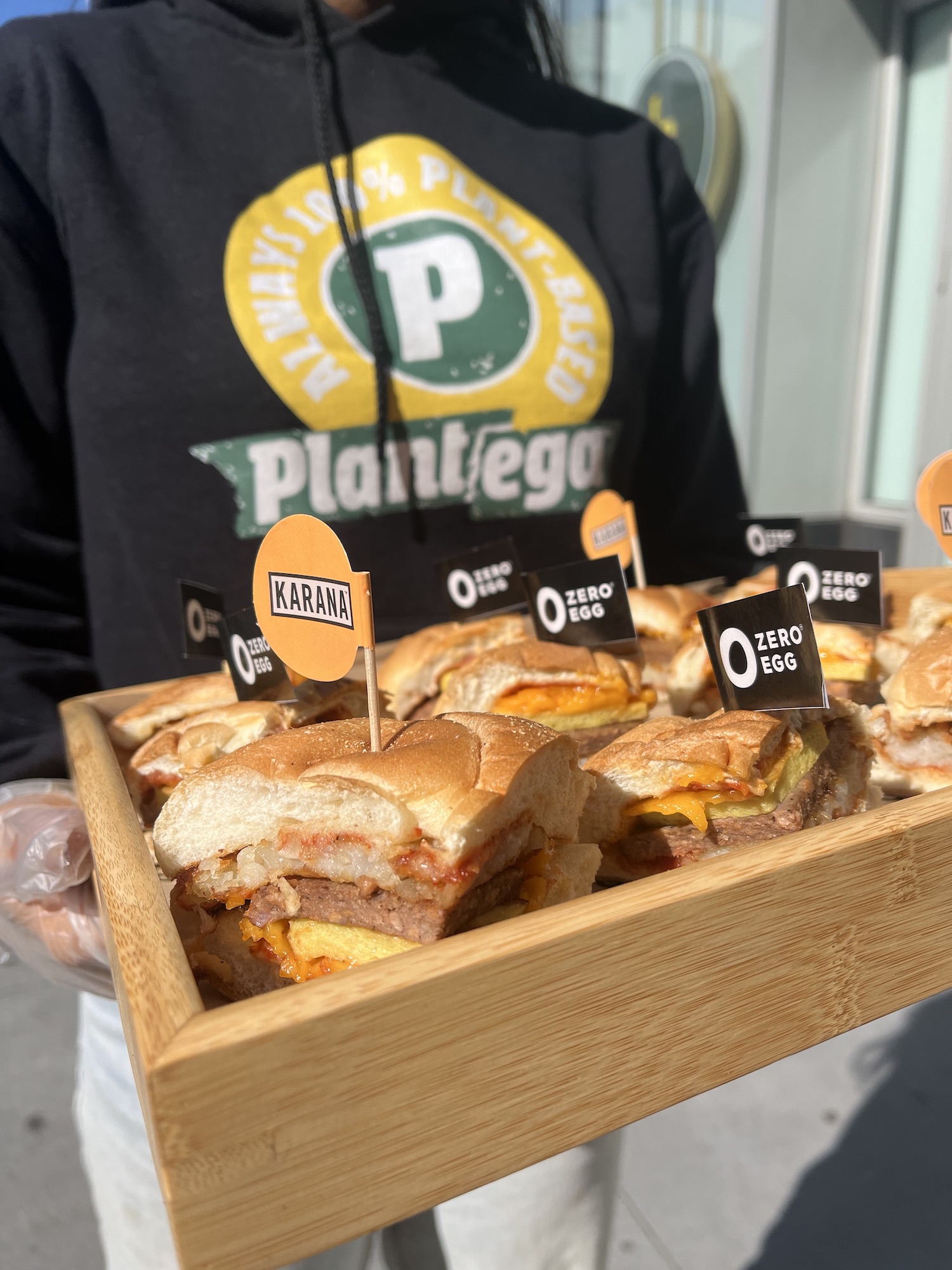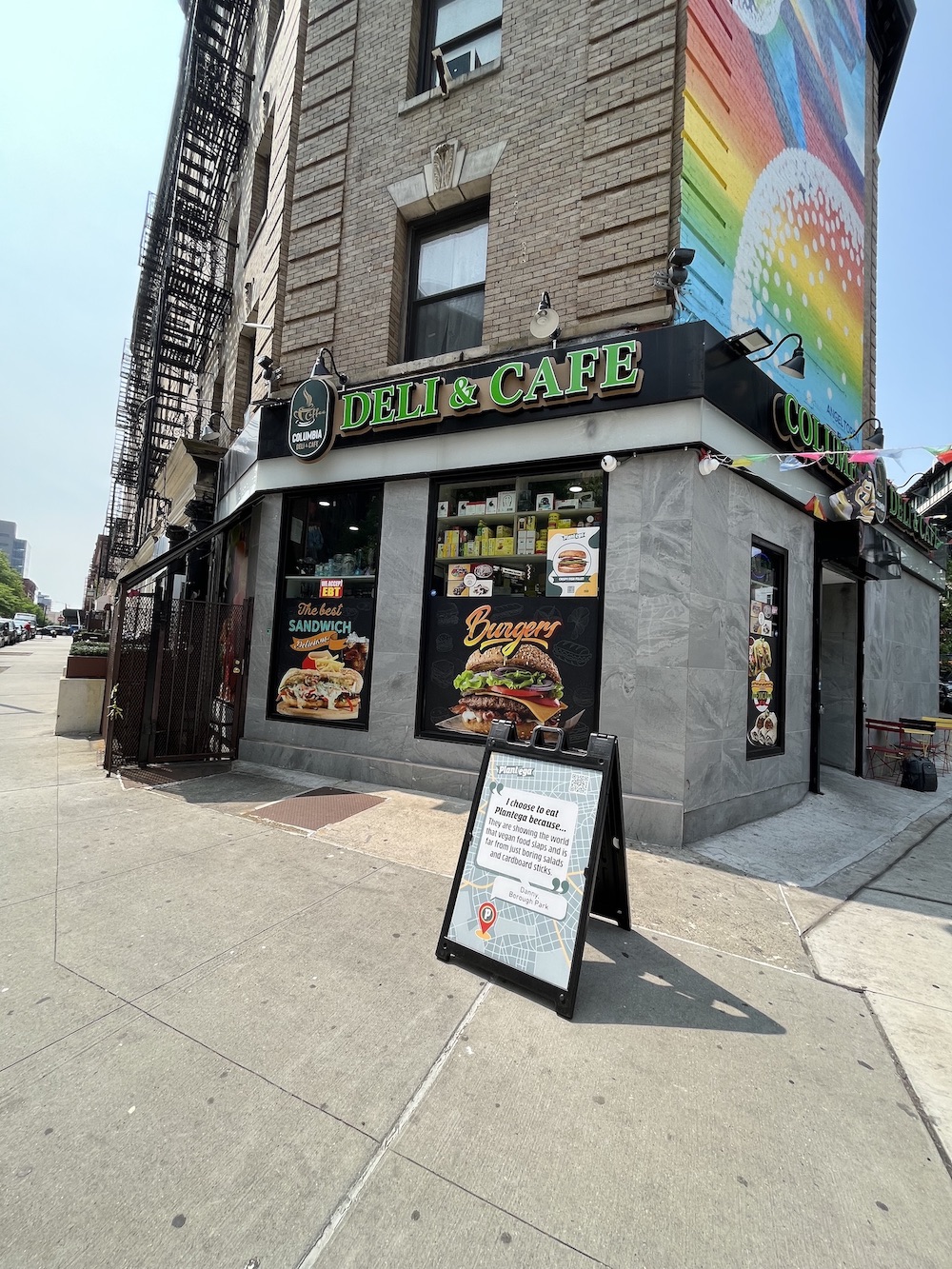
It might be the unlikeliest of places to find a plant-based egg sandwich, but for Nil Zacharias, founder and CEO of Plantega, New York City’s bodegas made perfect sense for his deli-in-store company. On a mission to make plant-based food more accessible, Plantega is changing the face of these iconic New York corner stores one sandwich at a time.
Today Plantega is located in over 44 bodega locations across New York City as well as on the food delivery platforms UberEats, DoorDash and Grubhub. A recent menu expansion saw the initial eight items grow to more than 62 dishes. Plantega items make up over 20 percent of deli counter sales at the participating bodegas, Zacharias says, and as much as 60 percent on weekends at some locations.
“Bodegas are typically the last place you go to find any healthy or sustainable good. Yet they are a lifeline in New York City, often the only place you can food within walking distance, or late at night," he says. "If you run out of an essential item or want to grab something on the go, bodegas fill that need, so they have a critical place in the fabric and culture of New York City."
The idea for Plantega emerged out of the pandemic in the summer of 2020 when hundreds of restaurants closed. Zacharias saw the opportunity for bodegas, as essential businesses, to fill the gap in the food industry. Now, they represent a new kind of distribution channel for plant-based foods that can reach consumers faster and empower small business owners.
“We decided to lean into what made bodegas great, which is that they are pretty quick, convenient and iconic, but also empower the small business owner to embrace the foods of the future by making it easy for them to do that,” he says. “And it’s a way to make plant-based foods available in places where people would least expect to find it.”

Making it easy for small businesses to invest
Using a turnkey model, Plantega allows bodega owners to start selling a premade menu of plant-based sandwiches in store, featuring products from partner brands like Zero Egg, Beyond Meat, Good Catch and Miyoko’s Creamery.
The concept is taking hold. Plantega sold more than 102,000 plant-based sandwiches and generated over $900,000 in revenue for local stores last year, Zacharias says. Those numbers topped 67,000 sandwiches and $700,000 in store revenue during the first quarter of 2023 alone. “In just three months, we sold over half of what we did in 12 months prior and reached nearly the revenue we generated in an entire year,” he says.
Plantega's approach not only helps small businesses expand their offerings with minimal effort, but it also gives plant-based brand partners a way to trial new products and scale distribution.
“The whole idea is to nudge someone who shops in that location to want to choose something that's plant-based,” Zacharias says, as he explained in more detail in the Eat For The Planet Podcast.
“We want to seamlessly fit in the environment in which the food is being sold, yet stand out as this attractive option," he says. "Even if you've never really wanted to try plant-based food, you'll see photos of our sandwiches or our attractive-looking menu right alongside the regular menu in the bodega, and hopefully you might be curious about it enough to make a choice.”

Tackling distribution barriers for plant-based food
It can be difficult for plant-based foods to get a foothold in the traditional retail and foodservice environment. Zacharias points to the hundreds of new plant-based brands, all wanting to get product trials and distribution in a retail and foodservice environment that is highly competitive and complex. The current food industry infrastructure has a number of barriers that deprive customers of the abundance of plant-based products on the market, he says.
“Retailers, restaurants, or institutional foodservice dining are generally hesitant to make any shift away from what's already working for them and selling, and if they do, the ramp-up time is pretty slow,” he adds.
Yet, given the obstacles, “the fact that plant-based foods are still growing is a miracle," he goes on. "That tells you that people are hungry for more sustainable foods, because the food system is really set up against it."

A win-win solution for bodegas and brands alike
Zachrias likes to describe Plantega as a "community-powered" food system. “The core of our model is all about mutual benefit, about reciprocity."
For bodega owners, the model is a win-win and offers several advantages. “We’re offering them a plant-based menu in a box, in essence," he says. "It is a concept you can plug into any functioning kitchen and start operations immediately. We help them pitch Plantega as a concept, train the cooks to prepare the food to meet our standards, and set the store up with distribution so they can order the products that are used in our menu at a competitive rate."
At its core, the system relies on bodegas doing what they do best, while giving them new options to explore. “The beauty of our model is that we don't tell them to change. We're just an add-on to what they're already doing," he says. "Our value proposition for them is that the barrier to entry is really low, which means the risk for them is very low. But if it works, the reward is really high. While our ingredients like our plant-based meats or eggs are higher priced for the owners than the meat-based alternatives, they're also sold at a slightly higher margin, and so they make more money selling the plant-based menu that we provide than they do their conventional menu.”
For food brands that want to pilot and scale new products, Plantega has proven to be an attractive concept. “They are widening their footprint and their sale possibilities in New York City — and, especially the emerging brands, what they really want is for consumers to taste their products and become aware of them. And we are helping to drive that in a pretty organic way.”
In short, Plantega is attempting “to democratize access to healthy, sustainable, plant-based food by empowering independent corner stores across New York City and several neighborhoods that lack access to healthy food," he says.
Making sustainable choices easier
Every choice matters in the need to make our current food system more sustainable, Zacharias argues. “Every effort to change our conventional food system, whether it’s organic food or regenerative food or plant-based, comes down to a question of choice. If we have the option of the better choice, we could change the food system.”
Still, selecting from a range of food choices that could be considered more sustainable is “a privilege that not everyone shares," he says. Around 19 million Americans live in so-called food deserts, which means they have limited access to affordable, fresh food in their neighborhoods.
"While I wouldn’t say our primary motivation in launching Plantega was to transform food deserts with more healthy food, I do think we definitely playing a small role in highlighting the problem and being a part of the solution," Zacharias says. "We're creating financial incentives for convenience stores to carry and sell quality, healthier and more sustainable food that's marketed in a culturally-relevant way so people can choose something they would otherwise not have access to. And that may open up people’s minds to perhaps seek out healthier alternatives down the line.”
Images courtesy of Plantega

Based in Florida, Amy has covered sustainability for over 25 years, including for TriplePundit, Reuters Sustainable Business and Ethical Corporation Magazine. She also writes sustainability reports and thought leadership for companies. She is the ghostwriter for Sustainability Leadership: A Swedish Approach to Transforming Your Company, Industry and the World. Connect with Amy on LinkedIn and her Substack newsletter focused on gray divorce, caregiving and other cultural topics.













